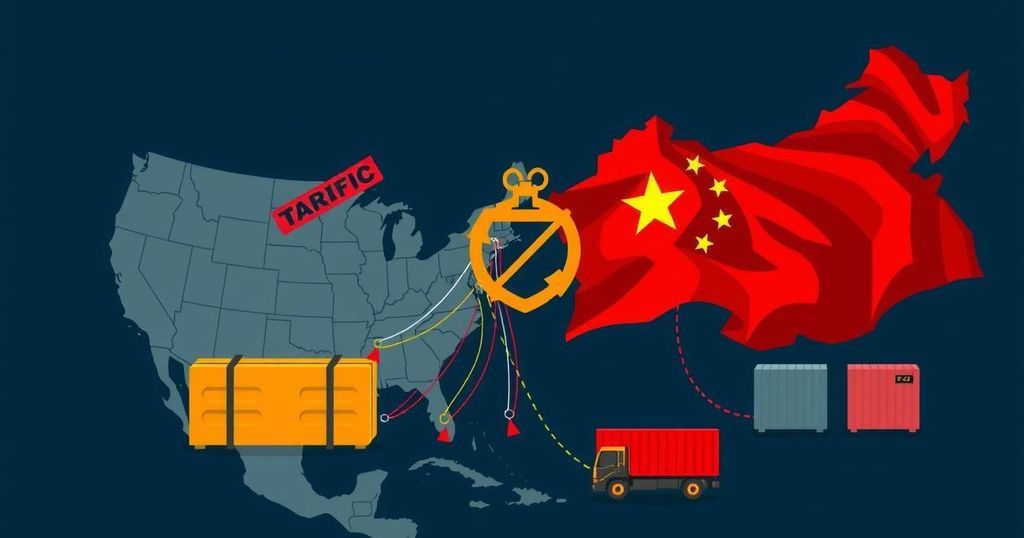economics
AMERICA, ASIA, BE, CANADA, CHINA, CNN, DONALD TRUMP, ECONOMICS, GOVERNMENT SPENDING, MEXICO, NATIONAL SECURITY, NORTH AMERICA, PETERSON INSTITUTE FOR INTERNATIONAL ECONOMICS, PHILIPPINES, SCOTT BESSENT, SENATE, TREASURY, TRUMP, TRUMP ADMINISTRATION, TRUTH SOCIAL, UNITED STATES, US, US-CHINA RELATIONS, WALL STREET
Marcus Li
0 Comments
Trump Proposes Significant Tariffs on Imports as Anti-Drug and Immigration Measures
President-elect Donald Trump intends to introduce significant tariffs on imports from Mexico, Canada, and China, starting on his first day in office. Announcing a 25% tariff on all products from Mexico and Canada, as well as a 10% hike on Chinese goods, Trump aims to address illegal immigration and drug trafficking. Economists express concern that these measures may lead to inflation and potential retaliatory trade actions, echoing challenges faced during his previous term.
On the inaugural day of his presidency, Donald Trump has committed to implementing significant tariffs on goods imported from Mexico, Canada, and China as a strategy to combat illegal immigration and drug trafficking. He announced via his Truth Social platform that a 25% tariff would be imposed on all products from Mexico and Canada, remaining in effect until both countries curb narcotic influx and illegal immigration. Trump has also proposed a 10% increase on existing tariffs on Chinese goods until the country addresses drug shipments, particularly fentanyl, into the U.S. This tariff strategy, reminiscent of Trump’s previous administration’s trade policies, is intended to bolster domestic manufacturing and close revenue gaps caused by proposed tax cuts. However, it has encountered criticism from economists who warn of inflationary impacts on American consumers due to increased prices on imported goods. The potential for retaliatory trade measures from affected countries could exacerbate the situation, as seen during Trump’s first term. In his second term, Trump has signaled intentions to implement even higher tariffs, with proposals reaching upward of 60% on Chinese goods and significant tariffs on all other imports. This development remains fluid and is subject to updates.
The implementation of tariffs is a cornerstone of Donald Trump’s trade policy, designed to protect American industries by making foreign goods more expensive. Trump’s approach prioritizes leveraging tariffs as a means to address immigration and drug-related issues, particularly from neighboring countries. The proposed tariffs reflect a broad strategy to bolster domestic manufacturing while also aiming to generate revenue that offsets tax cuts. Previous instances of tariffs introduced during Trump’s initial term resulted in trade wars that complicated the intended effects on domestic businesses, leading to concerns about the overall economic implications. The anticipated tariffs could reignite such tensions in international trade relations, potentially resulting in retaliatory measures that could harm the U.S. economy.
Donald Trump’s commitment to imposing substantial tariffs on goods from Mexico, Canada, and China marks a continuation of his administration’s trade policies. While aimed at combating illegal immigration and the drug crisis, these tariffs are likely to impose increased costs on American consumers. Furthermore, the potential for retaliation from affected countries raises concerns about sparking a new trade war, which could affect economic stability. The unfolding trade dynamics under Trump’s proposed policies will require careful navigation to mitigate adverse effects while pursuing domestic economic growth.
Original Source: www.cnn.com




Post Comment